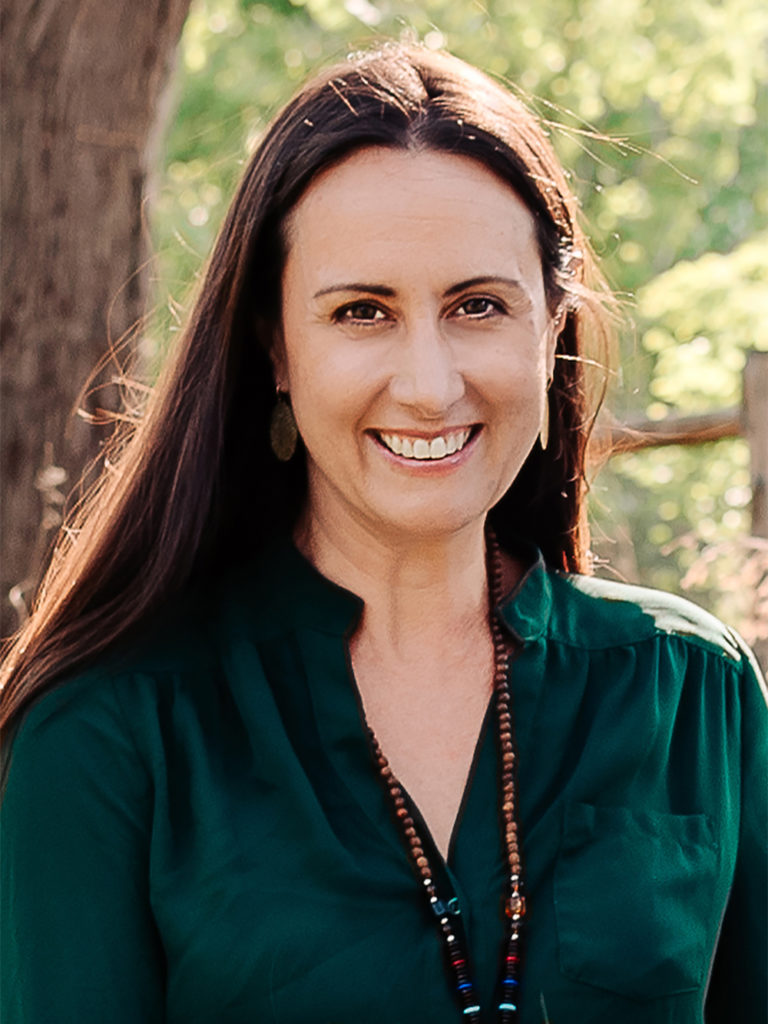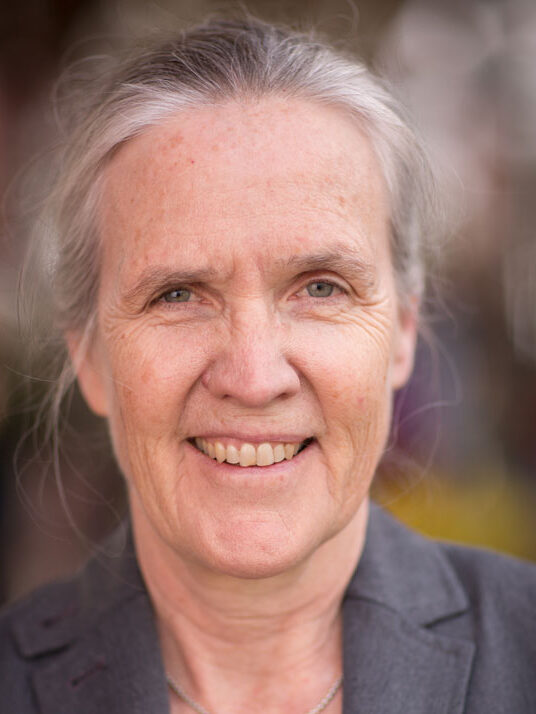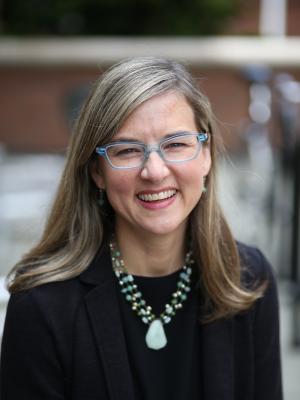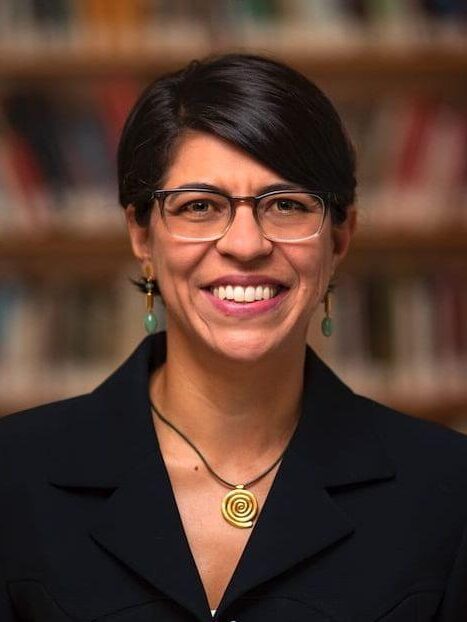Committee Members
Committee on Achieving Nutrition Security Across the Food Environment
Responsive Agriculture Study
The Committee on Achieving Nutrition Security Across the Food Environment will present key concepts, findings, and conclusions for achieving a food environment characterized by stable access to food that provides opportunities for all people to make dietary choices that promote their health through food.
Committee Chair

Christina economos
Christina Economos
Christina Economos is the Dean at the Friedman School of Nutrition Science and Policy, a Professor and the New Balance Chair in Childhood Nutrition, and a Professor of Public Health and Community Medicine at Tufts University School of Medicine. At the Friedman School, she co-founded and served as Director of ChildObesity180, a nationally renowned research initiative focused on evidence-based interventions, multi-sector partnerships, and stakeholder networks to address the complex drivers of child health and promote equity. She has served as the Dean for Research Strategy and as Chair of the Nutrition Interventions, Communications, and Behavior Change Division at Friedman. Dr. Economos currently serves as the principal investigator on multiple large-scale, community-based interventions that examine childhood nutrition and physical activity with the goal of improving the health of all of America’s children. Her bio-behavioral research studies are interdisciplinary and include theory-based obesity prevention interventions, cutting-edge systems science, and partnerships with diverse populations in urban and rural communities in schools, out-of-school environments, childcare centers, and restaurants. She has authored more than 200 scientific publications. She has co-created and co-directed a university-wide institute to address global obesity as part of Tufts University’s research and scholarship strategic plan. The Tufts Institute for Global Obesity Research (TIGOR) is a community of over 50 faculty across 8 schools. She also serves as Vice Chair of the Roundtable on Obesity Solutions (ROOS) at the National Academies of Science, Engineering, and Medicine in Washington DC, a multisector group tackling obesity. A dedicated scientist, she is equally committed to teaching and mentoring both students and junior faculty members at the School. At Friedman, she has advised over 100 master’s students, supervised internships and directed studies, and served on multiple thesis committees. As Chair of the Nutrition Interventions, Communications, and Behavior Change Division, she grew it into one of the largest in the School through a focus on recruitment, research expansion, faculty development, diversity, equity, inclusion, and curriculum design. Dr. Economos received a BS from Boston University, a MS in Applied Physiology and Nutrition from Columbia University and a PhD in Nutritional Biochemistry from Tufts University.
IHA Co-Director

Rebecca Seguin-Fowler
Rebecca Seguin-Fowler – Task Force Member
Rebecca Seguin-Fowler, Ph.D., R.D.N., L.D., C.S.C.S., is Co-Director for the Institute for Advancing Health Through Agriculture at Texas A&M University. As a public health scientist with expertise in community-based nutrition and physical activity intervention research, she provides leadership for the organization’s social and behavioral intervention research initiatives via the Healthy Living program. She is also chief scientific officer for the Healthy Texas Institute, professor in the Department of Nutrition in the College of Agriculture & Life Sciences, and graduate faculty in the Department of Health Promotion and Community Health Sciences at the School of Public Health.
Improving community health for underserved and underrepresented populations has been at the core of her work for more than two decades. She has led widely disseminated dietary and physical activity interventions, innovative food systems intervention projects, and a variety of adapted evidence-based programs for at-risk populations. Her current research focuses on understanding how people’s social, food and physical activity environments influence behavior change and maintenance—particularly in at-risk populations and settings, such as low-income families and rural communities.
Her programs have reached nearly every state in the U.S., as well as several other countries, helping hundreds of thousands of individuals improve their health and providing critical skill-building and support to a vast range of health educators working to serve their local communities.
She has secured more than $15 million in competitive funding to support her research with funding from the U.S. Department of Agriculture, National Institutes of Health, and the Centers for Disease Control and Prevention. She has received numerous awards throughout her career including the Mead Johnson Award from the American Society for Nutrition, an Excellence Award from the Society of Behavioral Medicine Annual Meeting and Scientific Sessions, and a Career Development Award from the National Institutes of Health National Heart, Lung and Blood Institute. She has published more than 115 peer-reviewed articles and is frequently asked to speak to national and international audiences about her scientific findings as well as her community-engagement research and multisector partnerships.
A registered dietician, she received her bachelor’s degree in clinical exercise physiology from Boston University and a master’s degree in nutrition communication and a doctorate in food policy and applied nutrition from Tufts University in Boston.
Committee Members

Alice Ammerman
Alice Ammerman
Alice Ammerman is Director of the University of North Carlonia at Chapel Hill’s Center for Health Promotion and Disease Prevention (HPDP), part of a national network of 26 CDC prevention research centers (PRCs) that work with community partners to identify public health problems to develop and evaluate prevention-focused public health interventions for wide dissemination, particularly in underserved communities. She is interested in design, testing, implementation and dissemination of innovative clinical and community-based nutrition and physical activity interventions for chronic disease risk reduction in low income and minority populations. She is also a social entrepreneur and founder of the social venture Equiti Foods/Good Bowls. Dr. Ammerman and colleagues have developed and are testing the “Med-South” diet which is the Mediterranean diet adapted to agricultural availability and taste preferences in the Southeastern US. Her research addresses the role of sustainable food systems in health, the environment, and economic well-being, emphasizing the social determinants of health, particularly food access and food insecurity. She has a developing interest in Culinary Medicine to improve medical training programs and uses social entrepreneurship as a sustainable approach to addressing public health concerns. She received her DrPH in Public Health Nutrition from the University of North Carolina at Chapel Hill and her BA from Duke University.

Deirdra Chester
Deirdra Chester
Deirdra Chester serves as the Director of the Office of the Chief Scientist (OCS) at the US Department of Agriculture where she leads OCS in delivering science and research that undergirds the policies and practices of USDA and its customers and stakeholders. Prior to this role, Dr. Chester was with the National Institute of Food and Agriculture (NIFA) where she served as the Division Director for the Division of Nutrition where she provided leadership and oversight for the Division’s research, education, and Extension activities across the nation through competitive grant programs. Dr. Chester is a Registered Dietitian/Nutritionist and she has spoken both nationally and internationally on nutrition topics and is on the editorial board of the Journal of Obesity and Chronic Disease. Dr. Chester is an American University Key Executive Leadership program graduate and is SES certified through the USDA Senior Executive Service Candidate Development Program. The American Public Health Association Food and Nutrition Section awarded her the Mary C. Egan Award and she was recognized by Florida State University’s College of Human Science with the Circle of Excellence Alumni Award. Dr. Chester holds a PhD in Nutrition from Florida International University, where she was awarded the McKnight Doctoral Fellowship and was in the inaugural class of the Gates Millennial Scholars. She also holds a master’s degree in food and nutrition science and a bachelor’s degree in nutrition and dietetics from Florida State University.

Uriyoán Colón-Ramos
Uriyoán Colón-Ramos
Uriyoán Colón-Ramos is an Associate Professor at the Milken Institute School of Public Health at George Washington University. She is an investigator in public health nutrition globally, with expertise in Latin America, the Caribbean, and the United States. Dr. Colón-Ramos’ research interests are driven by the lived and learned experiences of individuals from underserved communities who have seen their loved ones suffer from diet-related health conditions. The work from the interdisciplinary teams that she leads has won the Research Into Action Award (New Connections Program, Robert Wood Johnson Foundation); the Faculty Research Excellence Award (Honey W. Nashman Center for Civic Engagement and Service), and is supported by programs in private foundations as well as federal agencies such as the National Science Foundation, the Centers for Disease Control and Prevention, and the National Institutes of Health. Dr. Colón-Ramos was born and raised in Puerto Rico; is trilingual (French, Spanish, English) and a proud member of the 2004 cohort of emerging leaders in nutrition in Latin America (LiLANut). She received her BA and MPA from Cornell University and holds an ScD in Nutrition from Harvard T.H. Chan School of Public Health. She completed her post-doctorate training at the Division of Cancer Control and Population Sciences of the National Cancer Institute.

Joel Gittelsohn
Joel Gittelsohn
Joel Gittelsohn is a Professor in the Center for Human Nutrition and Global Obesity Prevention Center, International Health, Johns Hopkins Bloomberg School of Public Health. Dr. Gittelsohn is a public health nutritionist and medical anthropologist, who focuses on developing, implementing and evaluating community-based programs for the primary prevention of chronic disease in disadvantaged ethnic minority populations. With more than 280 publications, Dr. Gittelsohn has led multiple food source-centered intervention trials aimed at improving the food environment and providing education needed to support healthy food choices and reduce obesity and diabetes in Native communities, Baltimore City, and Pacific Islander communities. Dr. Gittelsohn developed a multi-institutional program for diabetes prevention in 7 First Nations in schools and food stores, which has been extended to 11 American Indian communities and includes worksites, social media and policy components. He has conducted a series of intervention trials with corner stores, carryouts, wholesalers, churches, and recreation centers in Baltimore City. Dr. Gittelsohn collaborates with the city of Baltimore to support their efforts to improve the food environment and promote disaster resilience. He has a PhD in Medical Anthropology and a MS from the University of Connecticut.

Tashara Leak
Tashara Leak
Tashara M. Leak is an Associate Professor in the Division of Nutritional Sciences and Associate Dean of the College of Human Ecology in New York City at Cornell University. Tashara also serves as Co-Director of the Cornell Action Research Collaborative (ARC), which provides infrastructure for researchers, policy makers, and community partners to collaborate on pressing societal issues (e.g., food insecurity) across New York State. Regarding her research, Tashara examines disparities in nutrition and health outcomes among U.S. adolescents, and designs culturally inclusive interventions in New York City to address these inequities. Her research is predominately funded by the grants from the U.S. Department of Agriculture (USDA) and National Institute on Minority Health and Health Disparities (NIMHD). Tashara holds a PhD in Nutrition from the University of Minnesota-Twin Cities and completed her postdoctoral training at the University of California-Berkeley, School of Public Health, Public Health Nutrition Program.

Jennifer Otten
Jennifer Otten
Jennifer Otten is an Associate Professor in the University of Washington Food Systems, Nutrition, and Health Program and in the Department of Environmental & Occupational Health Sciences and the Undergraduate Program Coordinator for the UW Food Systems, Nutrition, and Health major. She previously served in various capacities for the Institute of Medicine (IOM) of the National Academy of Sciences, including as a study director and as the organization’s first communications director. Dr. Otten’s research uses qualitative and quantitative tools to focus on understanding, changing, and evaluating food systems and food systems policies as they relate to public health and nutrition outcomes. Most recently, she worked with Washington State agencies and tribal organizations to assess the effects of programmatic and policy changes during COVID-19 on food purchasing and food security in Washington state residents, pacific northwest tribal communities, WIC clients, and the state’s food system. Her work also focuses on understanding and improving the ways in which evidence gets to the public policy table and is incorporated into public agency work. Dr. Otten completed her dietetic internship at the Massachusetts General Hospital in Boston, has her bachelor’s degree in nutritional sciences from Texas A&M University, completed a master’s degree in nutrition communication from Tufts University in Boston, and a received her doctorate in Animal, Nutrition and Food Sciences from the University of Vermont. She also completed a postdoctoral research fellowship at the Stanford Prevention Research Center in the Stanford University School of Medicine.

Alison Tovar
Alison Tovar
Alison Tovar is an Associate Professor of Behavioral and Social Sciences in the Department of Behavioral and Social Sciences in the Brown University School of Public Health. Dr. Tovar was a faculty in the Department of Nutrition and Food Sciences at The University of Rhode Island from 2012-2021 and joined the Department of Behavioral and Social Sciences at the Brown School of Public Health in 2022. She is affiliated with the Center for Health Equity Research. Dr. Tovar’s research focuses on understanding factors that shape eating behaviors early in life among historically marginalized populations, developing community-based interventions among these populations and evaluating policies that promote healthy eating. She has received funding from NIH, Healthy Eating Research, USDA among others to support her work. Dr. Tovar served on a national expert panel convened by Healthy Eating Research, a national program of the Robert Wood Johnson Foundation, to develop evidence-based best practices and guidelines for promoting the development of healthy eating behaviors aligned with optimal nutrition and physical growth among young children. She co-leads the National Early Childhood Working group, organized by Healthy Eating Research and Nutrition and Obesity Policy Research and Evaluation Network. Originally from Bogotá, Colombia, Dr. Tovar received her Bachelor of Science in Psychology from Northeastern University in 2001, a master’s in public health from Tufts University School of Medicine in 2005, and her PhD from the Friedman School of Nutrition Science and Policy in 2009.

Amy Yaroch
Amy Yaroch
Amy Yaroch is the Executive Director of the Gretchen Swanson Center for Nutrition (GSCN), where she leads a team of over 50 staff. She also holds a Special Dean’s appointment as Professor in the Department of Health Promotion, Social and Behavioral Health at the University of Nebraska Medical Center. Dr. Yaroch has over 20 years of experience in leading implementation and evaluation of public health nutrition programs. Prior to joining GSCN, Dr. Yaroch was a Program Director and Behavioral Scientist at the National Cancer Institute where she worked across the areas of nutrition, dietary assessment, survey development, obesity prevention, and skin cancer prevention. Since joining GSCN in 2009, Dr. Yaroch has been leading efforts in food and nutrition insecurity, food systems, healthy eating active living, and process and outcome evaluation. She is currently the Project Director on a multi-year cooperative agreement with USDA NIFA to lead the Gus Schumacher Nutrition Incentive Program (GusNIP) National Training, Technical Assistance, Evaluation, and Information Center (NTAE). Dr. Yaroch has authored close to 200 papers, four book chapters, and has been awarded grants and contracts from federal and non-federal sources across a broad range of areas. She holds a PhD in Nutrition and Health Sciences from Emory University and a BA in Psychology from the State University of New York at Albany.